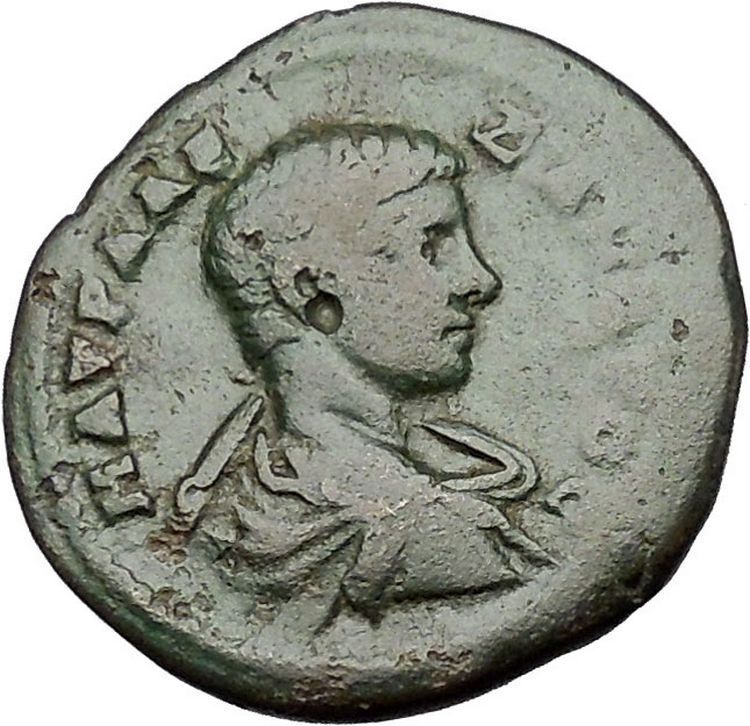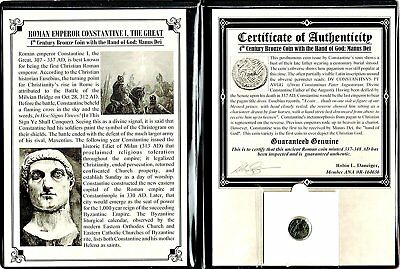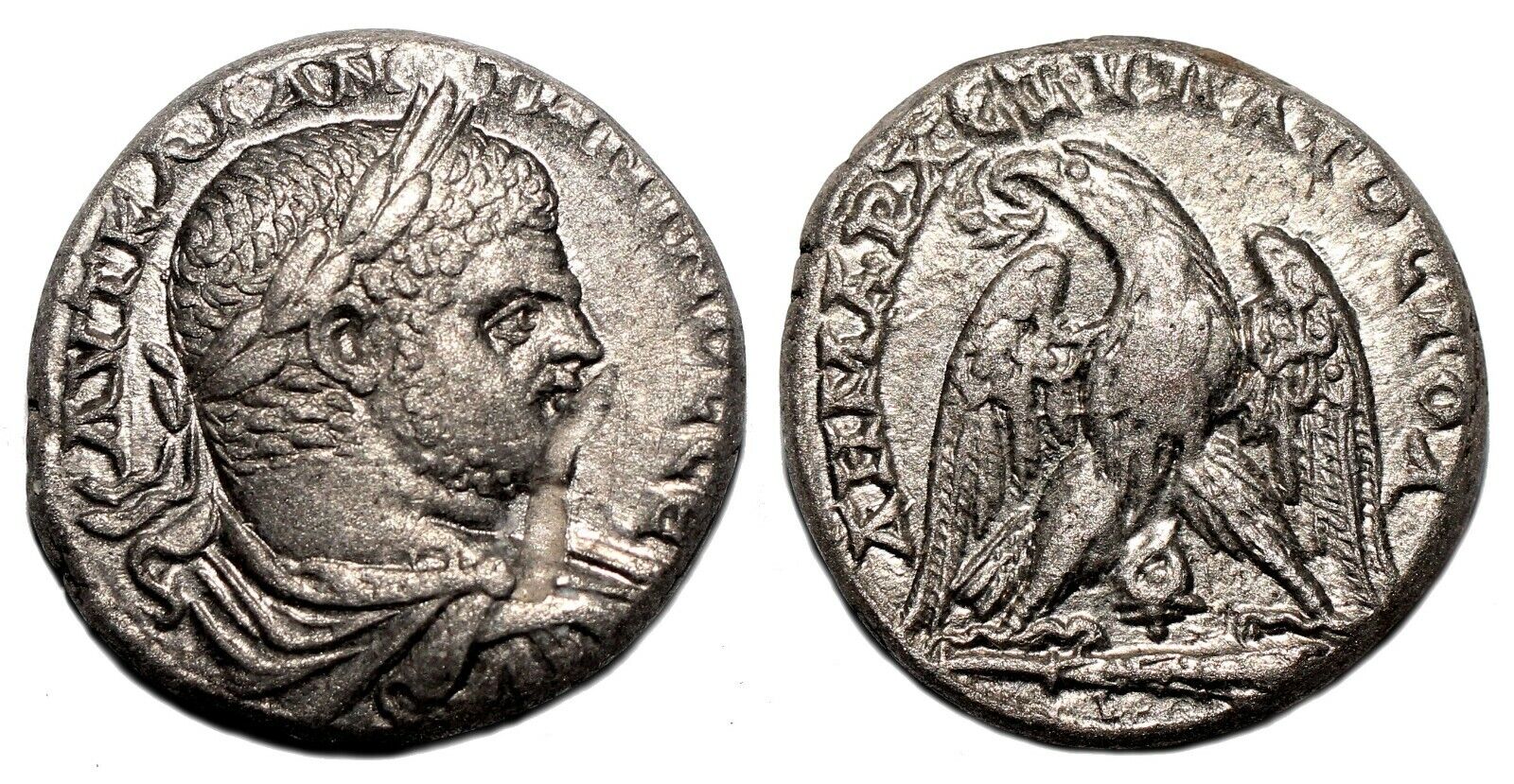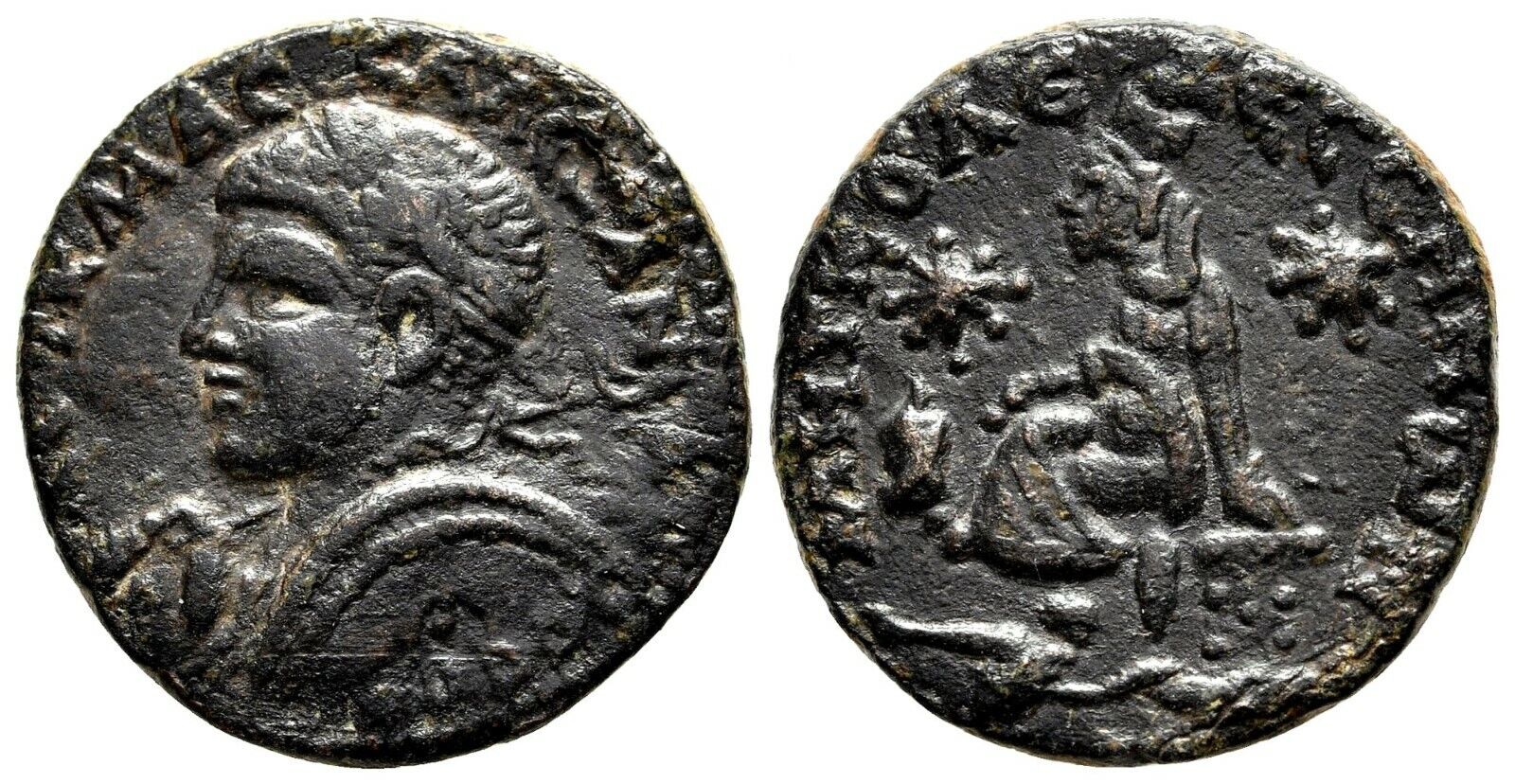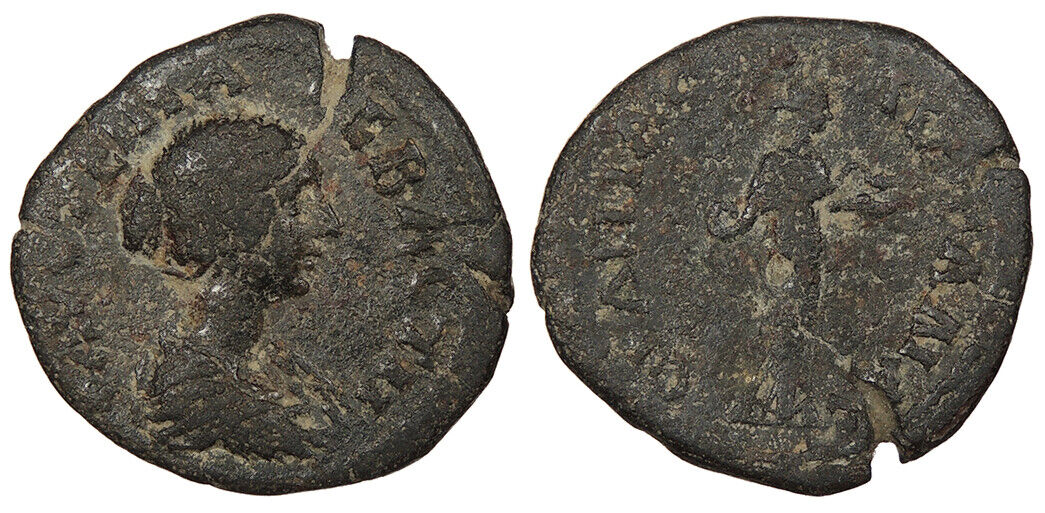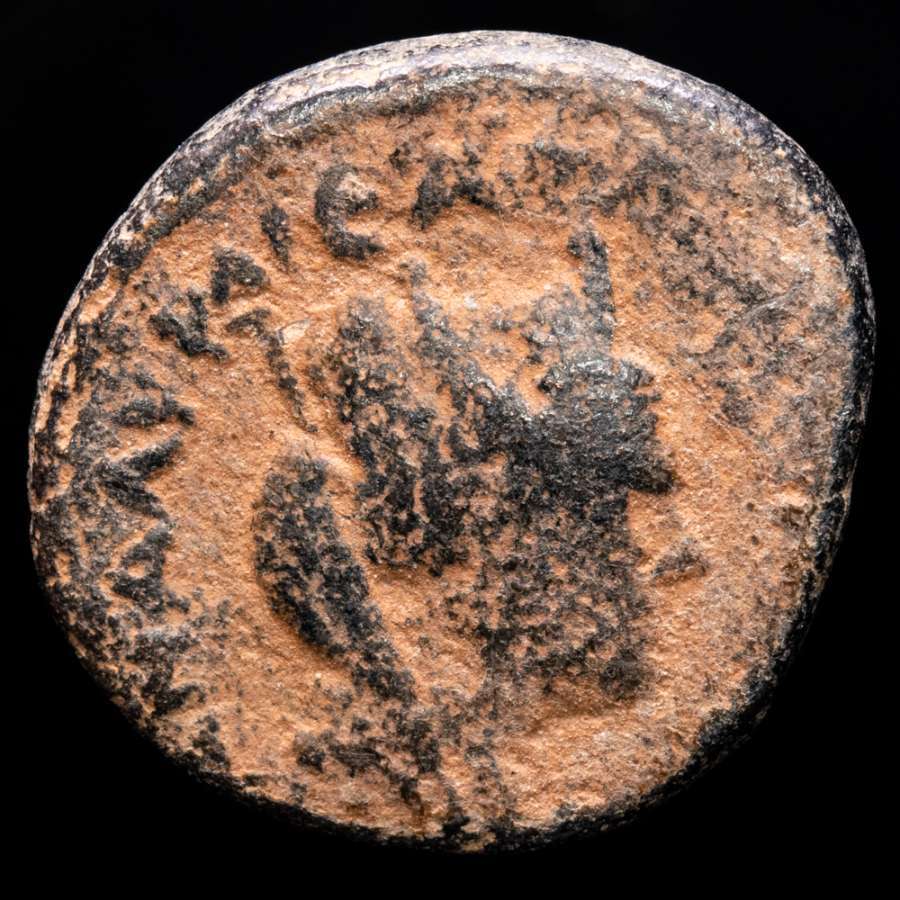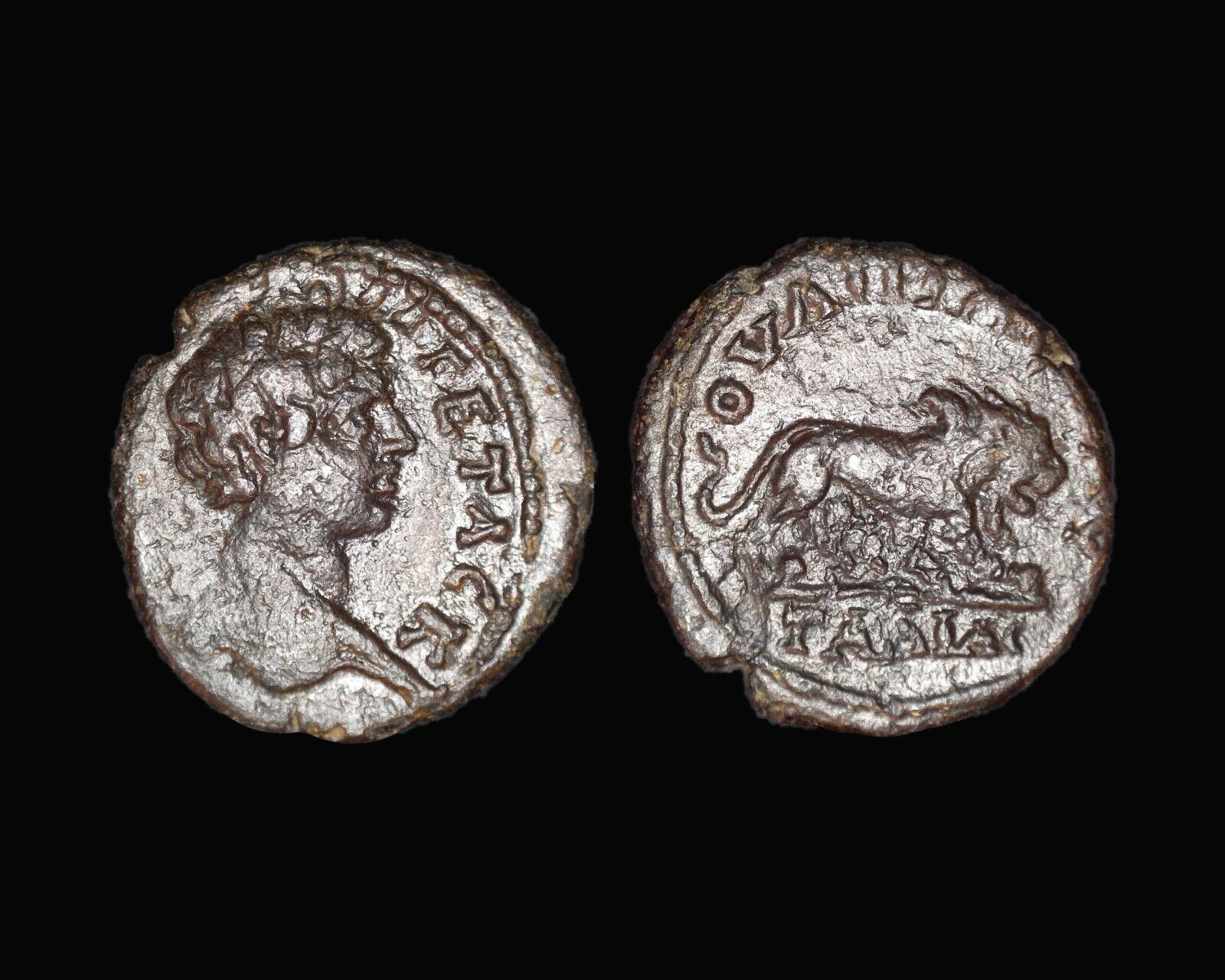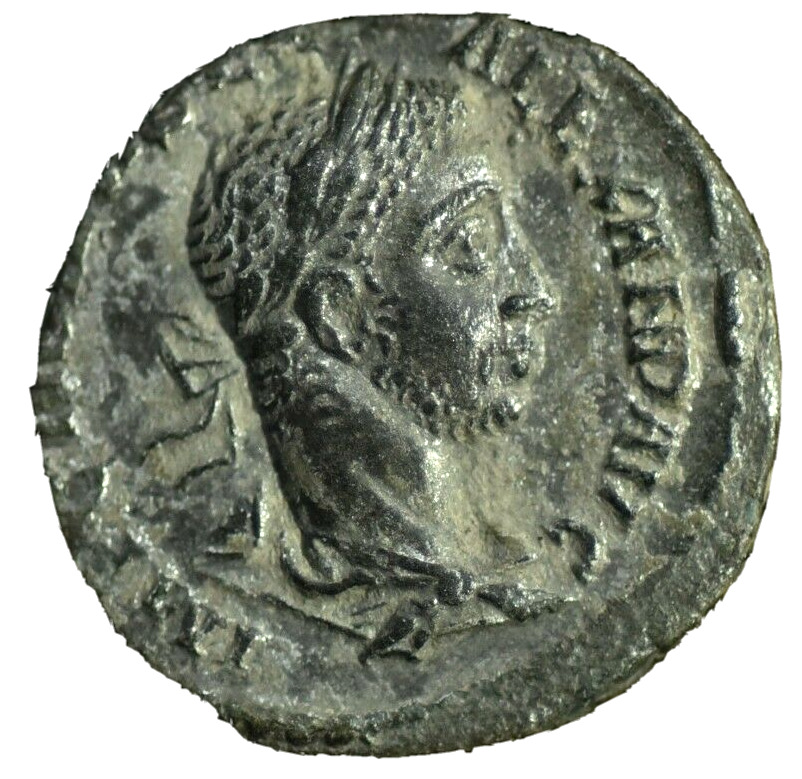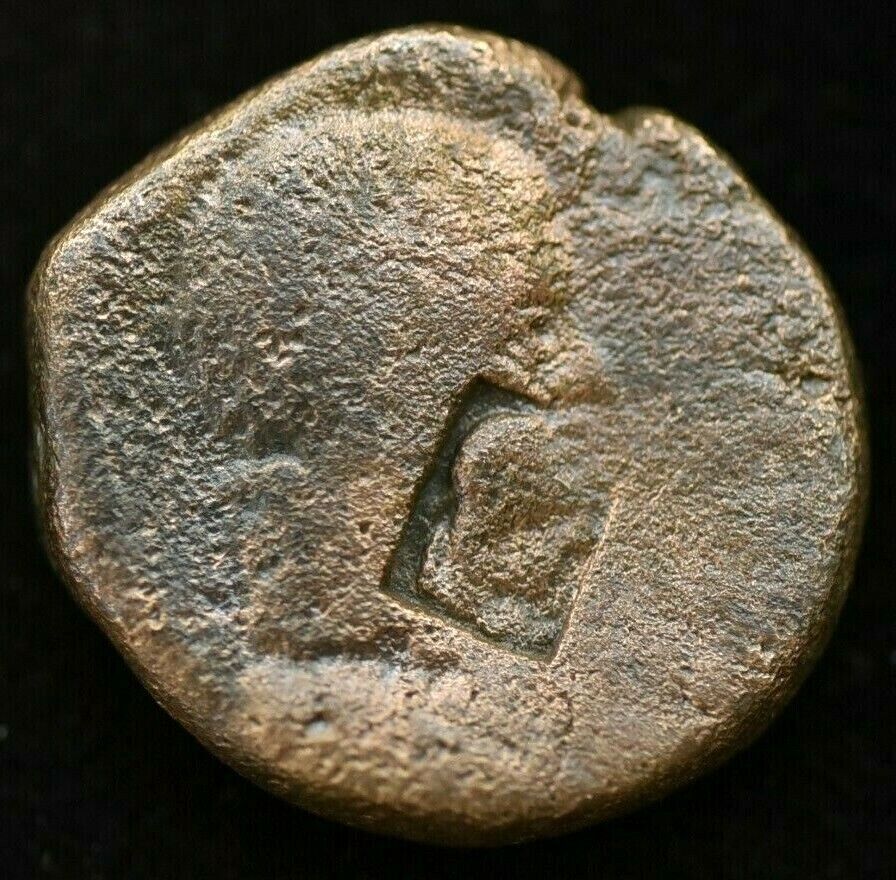-40%
SEVERUS ALEXANDER as CAESAR Rare 222AD Odessos Thrace Ancient Roman Coin i50886
$ 73.92
- Description
- Size Guide
Description
Item:i50886
Authentic Ancient Coin of:
Severus Alexander
-
Roman Emperor
: 222-235 A.D.
Severus Alexander as Caesar, Struck 222 A.D.
Bronze 26mm (9.72 grams) of
<="" font="" face="Times New Roman" color="#000000"> Odessos
in Thrace
M AVP AΛEΞANΔPOC, Bare-headed, draped and cuirassed bust right.
OΔHCCEITΩN, the Great God, Derzelas, of Odessos standing left, sacrificing from patera over fiery altar on left and holding cornucopia.
Rare depiction of Severus Alexander as Caesar with the bare head!
You are bidding on the exact item pictured, provided with a Certificate of Authenticity and Lifetime Guarantee of Authenticity.
Derzelas (
Darzalas
) was a
Dacian
or
Thracian
chthonic
god of abundance and the underworld, health and human spirit's vitality, probably related with gods such as
Hades
,
Zalmoxis
,
Gebeleizis
.
Darzalas was the Great God of
Hellenistic
Odessos
(modern
Varna
) and was frequently depicted on its
coinage
from the 3rd century BCE to the 3rd century CE and portrayed in numerous
terra cotta
figurines, as well as in a rare 4th century BC lead one (
photo
), found in the city. Darzalas was often
depicted
in
himation
, holding
cornucopiae
with
altars
by his side. There was a temple dedicated to him with a cult statue, and games (
Darzaleia
) were held in his honor every five years, possibly attended by
Gordian III
in 238 AD.
Another temple dedicated to Derzelas was built at
Histria (Sinoe)
- a Greek colony, on the shore of the
Black Sea
in the 3rd century BC.
Darzalas Peak
on
Trinity Peninsula
in
Antarctica
is named after the god.
The region of ancient
Thrace
was populated by
Thracians
by 1000 BCE.
Miletian
Greeks
founded the
apoikia
(trading post) of Odessòs towards the end of the 7th century BC (the earliest Greek archaeological material is dated 600–575 BCE), or, according to
Pseudo-Scymnus
,
in the time of
Astyages
(here, usually 572–570 BCE is suggested), within an earlier Thracian settlement. The name
Odessos
was pre-Greek, arguably of
Carian
origin. A member of the Pontic
Pentapolis
, Odessos was a mixed community—contact zone between the
Ionian
Greeks
and the
Thracian
tribes (
Getae
,
Krobyzoi
,
Terizi
) of the
hinterland
. Excavations at nearby Thracian sites have shown uninterrupted occupation from the 7th to the 4th century and close commercial relations with the colony. The Greek alphabet has been applied to inscriptions in
Thracian
since at least the 5th century BCE; the city worshipped a Thracian great god whose cult survived well into the
Roman
period.
See also: Derzelas
Odessos was included in the assessment of the
Delian league
of 425 BCE. In 339 BCE, it was unsuccessfully besieged by
Philip II
(priests of the Getae persuaded him to conclude a treaty) but surrendered to
Alexander the Great
in 335 BCE, and was later ruled by his
diadochus
Lysimachus
, against whom it rebelled in 313 BC as part of a coalition with other Pontic cities and the Getae. The Roman city,
Odessus
, first included into the
Praefectura orae maritimae
and then in 15 CE annexed to the province of
Moesia
(later
Moesia Inferior
), covered 47 hectares in present-day central Varna and had prominent public baths,
Thermae
, erected in the late 2nd century AD, now the largest Roman remains in Bulgaria (the building was 100 m (328.08 ft) wide, 70 m (229.66 ft) long, and 25 m (82.02 ft) high) and fourth-largest known Roman baths in Europe. Major athletic games were held every five years, possibly attended by
Gordian III
in 238 CE.
Odessus was an early
Christian
centre, as testified by ruins of ten early basilicas, a
monophysite
monastery, and indications that one of the
Seventy Disciples
,
Ampliatus
, follower of
Saint Andrew
(who, according to the
Bulgarian Orthodox Church
legend, preached in the city in 56 CE), served as bishop there. In 6th-century CE imperial documents, it was referred to as "holiest city,"
sacratissima civitas
. In 442 CE, a peace treaty between
Theodosius II
and
Attila
was done at Odessus. In 513, it became a focal point of the
Vitalian
revolt. In 536,
Justinian I
made it the seat of the
Quaestura exercitus
ruled by a
prefect of Scythia
or
quaestor Justinianus
and including Lower Moesia,
Scythia
, Caria, the
Aegean Islands
and Cyprus; later, the military camp outside Odessus was the seat of another senior Roman commander,
magister militum per Thracias
.
It has been suggested that the 681 peace treaty with the
Byzantine Empire
that established the new Bulgarian state was concluded at Varna and the first Bulgarian capital south of the Danube may have been provisionally located in its vicinity—possibly in an ancient city near Lake Varna's north shore named Theodorias (Θεοδωριάς) by Justinian I—before it moved to
Pliska
70 kilometres (43 miles) to the west. Asparukh fortified the Varna river lowland by a rampart against a possible Byzantine landing; the
Asparuhov val
(Asparukh's Wall) is still standing. Numerous 7th-century
Bulgar
settlements have been excavated across the city and further west; the ; the Varna lakes north shores, of all regions, were arguably most densely populated by Bulgars. It has been suggested that Asparukh was aware of the importance of the Roman military camp (
campus tribunalis
) established by Justinian I outside Odessus and considered it (or its remnants) as the legitimate seat of power for both Lower Moesia and Scythia.
SEVERUS ALEXANDER
Augustus:
A.D. 222-235
Caesar:
A.D. 221-222 under Elagabalus
Son of Julia Mamaea
Husband of Orbiana
Grandson of Julia Maesa
Nephew of Julia Soaemias
Cousin of Elagabalus
Second-cousin of Caracalla and Geta
Great-newphew of Septimius Severus and Julia Domna
Marcus Aurelius Severus Alexander
(October 1, 208–March 18, 235 AD), commonly called
Alexander Severus
, was the last
Roman emperor
(11 March 222–235) of the
Severan dynasty
. Alexander Severus succeeded his cousin,
Elagabalus
upon the latter's assassination in 222 AD, and was ultimately assassinated himself, marking the
epoch event
for the
Crisis of the Third Century
—nearly fifty years of disorder, Roman civil wars, economic chaos, regional rebellions, and external threats that brought the Empire to near-collapse.
Alexander Severus was the
heir apparent
to his cousin, the eighteen-year-old Emperor who had been murdered along with his mother by his own guards—and as a mark of contempt, had their remains cast into the
Tiber river
. He and his cousin were both grandsons of the influential and powerful
Julia Maesa
, who had arranged for Elagabalus' acclamation as Emperor by the famed
Third Gallic Legion
.
A rumor of Alexander's death circulated, triggering the assassination of Elagabalus.
Alexander's reign was marked by troubles. In military conflict against the rising
Sassanid Empire
, there are mixed accounts, though the Sassanid threat was checked. However, when campaigning against
Germanic tribes
of
Germania
, Alexander Severus apparently alienated his legions by trying diplomacy and bribery, and they assassinated him.
Life
Alexander was born with the name
Marcus Julius Gessius Bassianus Alexianus
. Alexander's father,
Marcus Julius Gessius Marcianus
was a Syrian
Promagistrate
. His mother
Julia Avita Mamaea
was the second daughter of
Julia Maesa
and Syrian noble
Julius Avitus
and maternal aunt of Emperor
Elagabalus
. He had an elder sister called Theoclia and little is known about her. Alexander's maternal great-aunt was empress
Julia Domna
(also Maesa's younger sister) and his great-uncle in marriage was emperor Lucius
Septimius Severus
. Emperors
Caracalla
and
Publius Septimius Geta
, were his mother's maternal cousins. In 221, Alexander's grandmother, Maesa, persuaded the emperor to adopt his cousin as successor and make him
Caesar
and Bassianus changed his name to Alexander. In the following year, on March 11, Elagabalus was murdered, and Alexander was proclaimed emperor by the
Praetorians
and accepted by the Senate.
When Alexander became emperor, he was young, amiable, well-meaning, and entirely under the dominion of his mother. Julia Mamaea was a woman of many virtues, and she surrounded the young emperor with wise counsellors. She watched over the development of her son's character and improved the tone of the administration. On the other hand, she was inordinately jealous. She also alienated the army by extreme parsimony, and neither she nor her son were strong enough to impose military discipline. Mutinies became frequent in all parts of the empire; to one of them the life of the jurist and praetorian praefect
Ulpian
was sacrificed; another compelled the retirement of
Cassius Dio
from his command.
On the whole, however, the reign of Alexander was prosperous until the rise, in the east, of the
Sassanids
. Of the war that followed there are various accounts. (
Mommsen
leans to that which is least favourable to the Romans). According to Alexander's own dispatch to the senate, he gained great victories. At all events, though the Sassanids were checked for the time, the conduct of the Roman army showed an extraordinary lack of discipline. The emperor returned to
Rome
and celebrated a triumph in 233.
The following year he was called to face German invaders in
Gaul
, who had breached the Rhine frontier in several places, destroying forts and over-running the countryside. Alexander mustered his forces, bringing legions from the eastern provinces, and crossed the Rhine into Germany on a pontoon bridge. Initially he attempted to buy the German tribes off, so as to gain time. Whether this was a wise policy or not, it caused the Roman legionaries to look down on their emperor as one who was prepared to commit unsoldierly conduct.
Herodian
says "in their opinion Alexander showed no honourable intention to pursue the war and preferred a life of ease, when he should have marched out to punish the Germans for their previous insolence". These circumstances drove the army to look for a new leader. They chose
Gaius Iulius Verus Maximinus
, a Thracian soldier who had worked his way up through the ranks.
Following the nomination of Maximinus as emperor, Alexander was slain (on either March 18 or March 19, 235), together with his mother, in a mutiny of the
Primigenia
Legio XXII
. These assassinations secured the throne for Maximinus.
The death of Alexander is considered as the end of the
Principate
system established by
Augustus
. Although the
Principate
continued in theory until the reign of
Diocletian
, Alexander Severus' death signalled the beginning of the chaotic period known as the
Crisis of the Third Century
which weakened the empire considerably.
Legacy
Alexander was the last of the Syrian emperors. Under the influence of his mother, he did much to improve the morals and condition of the people. His advisers were men like the famous jurist Ulpian, the historian Cassius Dio and a select board of sixteen senators; a municipal council of fourteen assisted the urban praefect in administering the affairs of the fourteen districts of Rome. The luxury and extravagance that had formerly been so prevalent at the court were put down; the standard of the coinage was raised; taxes were lightened; literature, art and science were encouraged; the lot of the soldiers was improved; and, for the convenience of the people, loan offices were instituted for lending money at a moderate rate of interest.
In religious matters Alexander preserved an open mind. It is said that he was desirous of erecting a temple to the
founder of Christianity
, but was dissuaded by the pagan priests.
Marriage
Alexander was married three times. His most famous wife was
Sallustia Orbiana
,
Augusta
,
whom he married in 225. He divorced and exiled her in 227, after her father,
Seius Sallustius
, was executed for attempting to assassinate the emperor. Another wife was Sulpicia Memmia. Her father was a man of consular rank; her grandfather's name was
Catulus
.
="">
Frequently Asked Questions
How long until my order is shipped?
Depending on the volume of sales, it may take up to 5 business days for shipment of your order after the receipt of payment.
How will I know when the order was shipped?
After your order has shipped, you will be left positive feedback, and that date should be used as a basis of estimating an arrival date.
After you shipped the order, how long will the mail take?
USPS First Class mail takes about 3-5 business days to arrive in the U.S., international shipping times cannot be estimated as they vary from country to country. I am not responsible for any USPS delivery delays, especially for an international package.
What is a certificate of authenticity and what guarantees do you give that the item is authentic?
Each of the items sold here, is provided with a Certificate of Authenticity, and a Lifetime Guarantee of Authenticity, issued by a world-renowned numismatic and antique expert that has identified over 10000 ancient coins and has provided them with the same guarantee. You will be quite happy with what you get with the COA; a professional presentation of the coin, with all of the relevant information and a picture of the coin you saw in the listing.
Compared to other certification companies, the certificate of authenticity is a -50 value. So buy a coin today and own a piece of history, guaranteed.
Is there a money back guarantee?
I offer a 30 day unconditional money back guarantee. I stand behind my coins and would be willing to exchange your order for either store credit towards other coins, or refund, minus shipping expenses, within 30 days from the receipt of your order. My goal is to have the returning customers for a lifetime, and I am so sure in my coins, their authenticity, numismatic value and beauty, I can offer such a guarantee.
Is there a number I can call you with questions about my order?
You can contact me directly via ask seller a question and request my telephone number, or go to my About Me Page to get my contact information only in regards to items purchased on eBay.
When should I leave feedback?
Once you receive your order, please leave a positive. Please don't leave any negative feedbacks, as it happens many times that people rush to leave feedback before letting sufficient time for the order to arrive. Also, if you sent an email, make sure to check for my reply in your messages before claiming that you didn't receive a response. The matter of fact is that any issues can be resolved, as reputation is most important to me. My goal is to provide superior products and quality of service.
